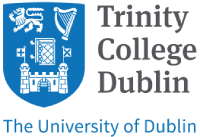Dr A McNabola
No more applications being accepted
Funded PhD Project (Students Worldwide)
About the Project
The Department of Civil, Structural & Environmental Engineering, Trinity College Dublin invite applications for a PhD Research position. The position is funded under the Trinity College Dublin Provost PhD Award programme and these doctoral awards are generously funded through the Universities alumni donations and Trinity’s Commercial Revenue Unit.
The Project
The project will include the development of diagnostic tools based on vibration analysis. Vibration in hydropower turbines will be detected using sensors placed on the machine by means of smart, low-cost affordable hardware. Supporting software solutions to analyse and interpret the data will also be developed.
The water industry is the 4th most energy intensive sector in the EU, and is responsible for considerable contributions to CO2 emissions and climate change. This is coupled with the challenges that climate change is placing on water and energy resources. The water industry is also a critical part of the water-energy nexus, where water supply requires energy, and energy production requires water.
Pumping of water is the most energy intensive activity within water supply. In addition many opportunities exist for the installation of hydropower turbines in water pipelines to generate electricity and reduce net demand. Significant efforts have been made in recent years to improve the efficiency of these hydraulic machines (pumps and turbines) to reduce energy consumption or improve production. However hydraulic machines require regular maintenance, and maintenance problems are known to greatly reduce efficiency, with consequent environmental impacts.
The global market for hydraulic machinery corresponds to €10.7 billion for pumps and €2.4 billion for turbines, illustrating the scale of these activities. This project aims to develop and test an innovative suite of sensor technology for the predictive maintenance of hydropower turbines, using an Internet Of Things (IOT) approach.
The data collected from the sensor suite will be transmitted through low-power wide-area networks and analysed in real-time to detect the onset of machinery faults. This will enable early detection of faults to allow the required repairs to be complete in advance of catastrophic failures, reduction in power output (turbines), or increases in power consumption (pumps). This approach will avoid expensive emergency repairs, lower the downtime of installed machinery, and maintain high operating efficiency in pumps and turbines, minimising environmental impacts.
The expected results of this work will include significant financial savings for water companies, which will reduce the cost of water for consumers. The results will also increase in the efficiency of installed hydraulic machinery, with subsequent reductions in CO2 emissions.
The selected Ph.D. candidate will develop a comprehensive suite of low-cost sensors to monitor the condition of pumps and turbines in various states of repair. This project will build on previous TCD projects (www.hydro-bpt.eu, www.redawn.eu and www.dwr-uisce.eu).
The University
Trinity College Dublin (TCD) was founded in 1592 and is the oldest and highest ranked University in Ireland (41st in the world - QS 2016 ranking). The School of Engineering generates €7-8 million in annual research income and is ranked in the top 1% of Engineering Schools in the world on the basis of citations. It is the highest ranked Engineering School in Ireland and was ranked in the top 100 internationally in the category of Engineering and Technology by QS World University Rankings. The School has a long history of research in the fields of air pollution science and building energy.
Funding Notes
In addition to the main research work, the successful applicant will also be expected to contribute to the production of project reports and scientific papers on the topic. Applicants with a masters or bachelors in areas of Engineering or Science relating to one or more of the core areas of the project will be considered.
Applicants with a 1st class honours degree or equivalent are strongly encouraged. Funding for the research project, commencing in September 1st 2019, will be €16,000 per annum for a period of 48 months. In addition the funding will cover full EU or Non-EU university fees.

 Continue with Facebook
Continue with Facebook

